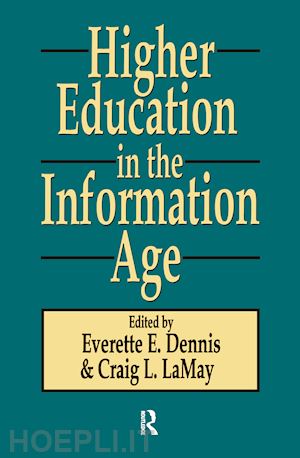College and university education has long been a material and intellectual luxury in American life. Fewer than 38 percent of Americans have ever attended college, and only about half that number hold bachelor's degrees. While post-World War Two legislation greatly democratized higher education, the editors of this volume contend that the system has never been a public stewardship. Many universities are devoted to private sector research rather than public learning, to productivity rather than democratic discourse, and because of diminished financial opportunities, increasingly exclude poor, working and lower middle class students, many of them people of color. The contributors to this volume recognize that the American system of higher education is the most open and egalitarian in the world. Largely for this reason, it is the only American institution which today enjoys a positive balance of trade. Many more foreign students come to study at American universities than do Americans go to study abroad. The study of higher education in an information age means examining higher education. The place of economics in decision-making is as a vehicle for social mobility. The volume covers a myriad of themes: the role of media ranking universities, and their contribution to low expectations of universities; the disjunction between massive support for college and university sports events and the intellectual and presumed academic missions of these institutions of higher learning; and boosterism as a general phenomenon in funding. Yet, editors and contributors alike emphasize new currents in the educational agenda. The essays cover efforts to close the gap between the mutual recriminations of universities and media leaders. The theme of this volume is that there is a crisis in higher education and a crisis hi knowledge--who produces it, controls it, uses it, and benefits by it. Properly understood, the issues common to both higher education and the media have profound implications for public life. This volume is critical of current practices, but also mindful that the university remains a place in which civil forms of discourse are central, and hence of great potential benefit to the dissemination of information and ideas as such. It will be of interest to professional interested hi communication and education.











